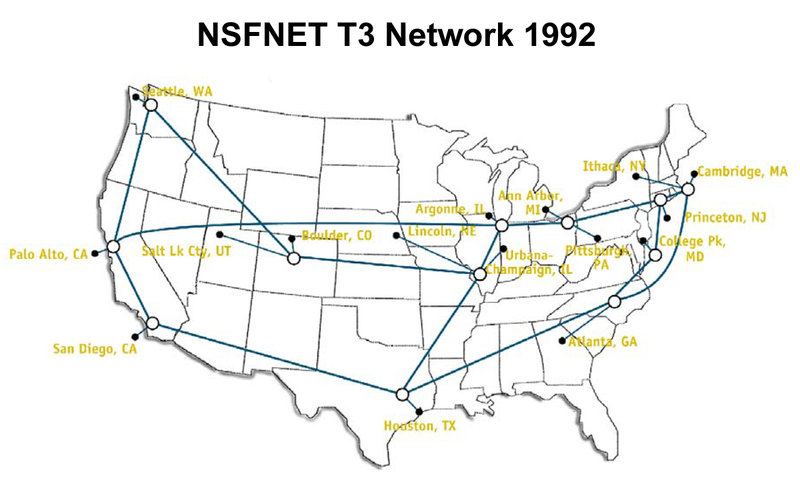With bullying front and center in the news after Amanda Todd’s tragic suicide I found myself reflecting on my personal experiences on the subject. I certainly wasn’t the victim of persistent bullying, but there are a few incidents that have stuck in my mind:
- In grade 4 an older kid (a grade 5) kicked my lunch box down the street. My dad took me over to his house and had a chat with his father and he apologized. I’m now friends with him on Facebook and he’s since apologized for real.
- In grade 8, I had a disagreement with a girl in my class and she got excessively angry with me and starting slapping me and punching me and what-have-you. Having been raised to never, under any circumstances, ever hit a girl, I just took it. Later that afternoon my teacher made a snide remark about me getting beat up by a girl in front of the whole class. To this day I don’t know if I said it or if it was something I thought I ought to have said, but the phrase “What would you have done if had I hit her back?” keeps popping into my head. The girl and I became friends days later and today we chat occasionally on Facebook.
- In grade 9 the older brother of a girl in my grade (and who was on my paper route) shoved me in a locker. Well, he tried. I pulled the old cat trying to avoid a bath trick and never made it in. That didn’t stop word from spreading that I actually had been shoved in though. Who were people going to believe, a grade 9 geek or a grade 12 punk? Facebook status for her: not friends but would friend. As for her brother, we’re not Facebook friends now and not ever likely to be.
- One of my friends in high school dated a bully for a couple years. He liked to assert his masculinity by pushing me around and threatening me. I suspect it was because he was insecure in his relationship, and as a person in general. I’m still friends with the girl (yes, on Facebook too). I don’t care to ever be Facebook friends with the guy.
And then there was the time I was walking into a hockey rink and was punched by someone for allegedly “smiling at him”. Turns out a local gang was hanging out there and were looking for trouble. Before I knew it a pack of them had shoved me into an empty change room and were laying the boots to me. Boots and fists… and elbows… and knees, though I remember only one knee – the one that, as my head was being pushed down, came up and caught me right in the face. After that, it was all a blur of Doc Martin’s and Air Jordan’s and the taste of blood. They say you can’t actually remember the feeling of pain, but I sure remember what I was feeling.
Despite the arena manager and first responding officer telling me that I shouldn’t pursue action for fear of retribution, I pursued action. They caught 3 of the guys and two plead out and got something like 6 months probation. The “ring leader” got 2 years probation and a whole lot of other conditions like curfew and restraining order limiting his distance from me and so forth. After what I went through, let’s just say I wasn’t the biggest fan of the Young Offenders Act.
Today, even as I typed that last paragraph, my teeth clenched and I felt panic in my chest – and this all happened over 20 years ago.
Twenty years is a long time to be carrying around that memory, but it’s impossible to forget. Trust me, I’ve tried, but then something happens and I hear about it in the news and there it is again. Sometimes, and this is one that I’m having a hard time explaining, sometimes the reminder comes in a much less subtle way and hits me like a knee to the face.
Yesterday I found myself in Toronto helping out an old high school acquaintance by doing a bit of work as an unpaid extra in a music video he’s producing. A couple other guys from the old neighborhood were there too:
- The step son of my grade 8 teacher.
- A guy who was there that night I was attacked.
The step son of my grade 8 teacher is a year older than me but we went to the same high school and know a lot of the same people. It was nice talking to him and he and I actually made quite an impression on the crew during the shoot. We’re friends on Facebook now.
The other guy, I had been talking to him for a couple hours as we waited for our scene to come up and when talk turned to other people from the neighborhood I mentioned the names of the “ring leader” and two other guys – only I got the name wrong. He looked at me and confessed that he was there that night and knew those involved.
I have picked through my thesaurus and still can’t come up with a single word that adequately describes what I was feeling.
Today he’s an everyday guy living a life anyone of us could have had. He went to shoot his scene and I never really saw him after that. The producer posted a pic on Facebook and he “liked” it. I’m currently undecided if I would accept his friend request should he ever send me one, though I’m leaning towards no.
The stylist overheard some of the conversation at one point as the other guy and I were talking with the producer and she asked me how I felt, what I was thinking… I’ll be honest with you, I am not at all proud about what I said and even less proud about what I thought. The rest of the day, the drive home, most of last night, many hours in bed, and a good part of today I have been trying to reconcile my feelings on all this. Thankfully, I think I have.
You see, I am a firm believer that the world would be a better place if more people were happy. I genuinely want the people around me, in my community, to be happy. On a very basic level, it would make the simple act of leaving the house that much more enjoyable. As such, I have put myself on a path that includes finding ways to be happy, and have those around me be happy as well. In collaboration with, and never at the expense of others.
For 20 years I have felt that my attackers took something from me, and that they should pay. For as long as I felt pain, they should feel misery, hurt, and despair 100 times over. This is just a taste of some of the thoughts that have gone through my head as recently as this morning, and I’m ashamed for having them. Just sticking to the path I have chosen should be enough.
It is enough.
If the people that kicked the crap out of me for no reason have put themselves on a similar path then I am pleased. If they haven’t, well then they’re going to reap what they sow eventually. The Universe has a way of balancing itself out, and karma has a way of kicking your ass worse than any human ever could.
Today I have two hopes and one wish.
My first hope is that a kid being bullied reads this and talks to someone about what they’re going through, and talks to as many people as they have to until someone listens. My second hope is that they won’t have to talk to more than one. I was 0 for 2 on help that night, but the next person listened, and so did the person after that, and the person after that.
You are not alone.
My wish is that at least one bully reads this and decides to choose a different path. The world can always use one more happy person and if they choose the right path the world will get at least two.





